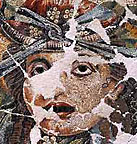 The birth of the Hellenistic period, when Greek culture began to spread far beyond its native territory, has long been set around 334 B.C. to 323 B.C., when Alexander and his troops began their 20,000-mile conquest, thundering from Macedonia south through what is now Syria, Lebanon, Israel and Egypt. The troops then set off for Persia and India. But, a University of California, Berkeley-led group of researchers, excavating the ancient town of Dor in Israel, is challenging the common history that credits the Macedonian king with initiating the spread of ancient Greek culture throughout the Middle East during his conquest of the region during the 4th century B.C.
The birth of the Hellenistic period, when Greek culture began to spread far beyond its native territory, has long been set around 334 B.C. to 323 B.C., when Alexander and his troops began their 20,000-mile conquest, thundering from Macedonia south through what is now Syria, Lebanon, Israel and Egypt. The troops then set off for Persia and India. But, a University of California, Berkeley-led group of researchers, excavating the ancient town of Dor in Israel, is challenging the common history that credits the Macedonian king with initiating the spread of ancient Greek culture throughout the Middle East during his conquest of the region during the 4th century B.C.
Team members will direct their attention to the wealth of materials found at the ancient Israelite seaport site of Dor, established by the Canaanites around 2,000 B.C. and once the harbor of King Solomon. Alexander the Great passed by Dor on his march from Tyre to Gaza and Egypt, by which time the city hosted a lively mixture of Phoenicians, Jews, Greeks and others. Finds thus far have included a 5th century B.C. headless statue of the Greek winged goddess Victory, together with fragments of a demolished Greek temple, and an elaborate and intricate mosaic floor featuring a masked actor from a Greek comedy.
No comments:
Post a Comment